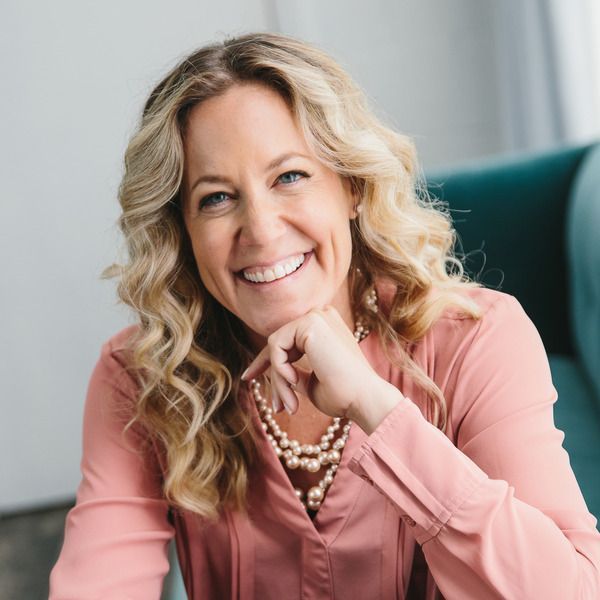How Much Does It Cost to Become a Certified Parenting Coach?

Parent coaching is more than a career path; it’s a calling. Those drawn to this work often describe it as a natural next step after their own growth as parents, educators, or helping professionals. But before saying yes to certification, one of the most practical questions arises:
How much does it really cost to become a certified parenting coach?
While tuition is the largest factor, the total investment includes materials, mentorship, and most importantly: the lifelong value that certification can bring both professionally and personally.
This guide breaks down every aspect of the cost and the long-term return, so you can make an informed and inspired decision.
Factors That Influence Certification Cost
No two programs are alike. Costs vary based on the school’s accreditation, faculty expertise, curriculum depth, and ongoing support. Understanding these factors will help you compare programs not just by price, but by value.
Tuition & Fees
Tuition for reputable parent coaching certification programs generally ranges between $3,000 and $9,000.
Here’s what determines where a program falls on that spectrum:
- Program length and format. Short, self-paced online courses with limited supervision are usually cheaper, but often lack depth. A full-length, cohort-based program, like Jai Institute for Parenting’s 7-month certification, includes live mentorship, practice coaching, and business training, making it a more comprehensive (and thus higher-value) investment.
- Instructor credentials and mentorship. Programs led by experienced educators and professional coaches who offer live feedback will cost more than pre-recorded video courses.
- Certification level and reputation. A recognized, accredited certification often carries more weight with clients and professional organizations.
At The Jai Institute for Parenting, for example, the tuition for the seven-month certification is $4,750 when paid in installments, or $3,750 when paid in full.
Students receive lifetime access to curriculum updates, live training, practice coaching, and a turnkey 12-week coaching program they can immediately use with their clients.
Study Materials & Resources
High-quality parent coaching programs typically include digital manuals, video instruction, and access to a learning portal. Additional expenses might include:
- Required reading. Expect to invest around $100 in foundational books on attachment science, Nonviolent Communication, and nervous system regulation.
- Supplemental resources. Some students purchase coaching software or digital tools to organize sessions and client notes.
- Optional continuing education. Some graduates choose to take advanced workshops or business development courses later, which can range from $500 to $5,000.
At Jai, all core materials, including the comprehensive workbook series, are included in tuition.
Exam & Renewal Costs
While parent coaching is not a regulated field requiring state licensure, many programs issue a renewable certificate or offer ongoing alumni access.
Renewal fees, if applicable, are usually minimal (often $100–$300 annually) and cover continued access to live community calls, updated content, and alumni support.
Some graduates also pursue optional professional memberships with organizations such as the International Coaching Federation (ICF) or the Association for Coaching, which may include annual fees of $250–$500.
Typical Investment Range
To help you visualize the landscape, here’s a snapshot of what parent coaching certification programs typically cost:
| Program Type | Tuition Range | Format & Features |
|---|---|---|
| Self-paced online course | $1,000 – $2,500 | Pre-recorded videos, minimal feedback, short duration |
| Hybrid live + online training | $3,000 – $5,000 | Some mentorship, moderate supervision, group learning |
| Comprehensive cohort program (like Jai) | $4,000 – $7,000 | Live instruction, personalized mentorship, full business training |
| University-affiliated or dual-credential programs | $6,000 – $10,000 | Academic coursework, research, or practicum requirements |
Low-End vs. High-End Programs
Low-End Programs
Pros: Affordable, flexible, and often quick to complete.
Cons: Usually self-directed, with limited supervision, minimal live interaction, and little guidance for launching a career.
High-End Programs
Pros: Offer depth, accountability, and long-term support. Students learn both the science of parent coaching and the embodiment of leadership. These programs often include supervision, practice clients, and business coaching.
Cons: Higher upfront investment and longer time commitment, but with far greater long-term returns.
When evaluating cost, look beyond “How much does it cost?” to ask “What am I gaining?”
Programs like Jai’s include lifetime access to curriculum updates, live supervision, and built-in coaching tools and resources that eliminate the need to buy additional training later.
Long-Term Value of Certification
When you invest in parent coach certification, you’re not just paying for a course; you’re stepping into a personal and professional evolution that continues to grow in value long after graduation.
Career Return on Investment
Certified parenting coaches can build diverse and sustainable careers. According to Jai’s graduate data and industry reports, many certified coaches charge between $100 and $250 per session or $1,000 to $3,000 for multi-month coaching packages.
Here’s how ROI can play out:
| Path | Example Income Potential | Notes |
|---|---|---|
| Private Coaching Practice | $40,000–$100,000+ annually | Based on 10–20 clients/month, $150/session average |
| Workshops & Group Programs | $5,000–$20,000 per launch | Often hosted online or through schools/community groups |
| Corporate/Institutional Consulting | $2,000–$10,000 per contract | Partnering with schools, nonprofits, or wellness programs |
| Content Creation (Courses, Books, Speaking) | Variable | Passive income and long-term thought leadership |
Many Jai graduates choose hybrid paths (combining 1:1 coaching, group programs, and speaking engagements), while others integrate parent coaching into existing professions such as therapy, education, or wellness.
Beyond financial ROI, certification offers credibility. It signals to families and organizations that you are trained in evidence-based methods grounded in attachment science, emotional intelligence, and nervous system regulation.
Personal Fulfillment & Impact
Perhaps the most meaningful return on investment can’t be quantified.
Parent coaching begins with your own transformation. Before you ever guide others, you learn to regulate your own nervous system, communicate with compassion, and lead your family from calm, connected authority.
Graduates often describe the personal benefits as life-changing:
- Greater self-awareness and emotional regulation
- More peaceful, connected relationships with children and partners
- Confidence in handling conflict without resorting to control or disconnection
- The satisfaction of watching other families heal and thrive through your guidance
As one Jai graduate put it,
“I used to second-guess myself in every hard parenting moment. Through this program, I learned how to trust my calm and coach from that space. That confidence has changed everything.”
FAQs
1. Do I need to be a therapist or educator to enroll?
No. Parent coaching certification programs, including Jai’s, welcome participants from diverse backgrounds. You don’t need a degree in psychology, just empathy, curiosity, and a genuine desire to help families thrive. The training itself provides the frameworks and tools you’ll need to coach responsibly and effectively.
2. How long does certification take?
Most comprehensive programs last 6–9 months. Jai’s program runs for seven months, requiring about 5–7 hours per week for coursework, live sessions, and practice coaching.
3. Is there a payment plan available?
Yes. Most institutions offer installment plans. Jai’s 10-month plan allows students to spread tuition payments while still receiving full access to training and mentorship.
4. Can I work while studying?
Absolutely. Parent coach certification programs are designed with busy parents and professionals in mind. Coursework is flexible, and live sessions are typically recorded.
5. What’s included in Jai’s tuition?
- Live weekly classes and supervision with certified trainers
- Access to the Jai's multi-phase curriculum
- Practice coaching sessions and feedback
- Business training and client-launch resources
- Lifetime access to materials and alumni network
- Turnkey 12-week coaching program you can use with clients
6. What are my career options after certification?
Parent coaches work in a wide range of settings:
- Private practice (1:1 and group coaching)
- Schools and educational institutions
- Healthcare and mental wellness centers
- Nonprofits and community programs
- Corporate wellness and HR initiatives
Others become authors, speakers, or curriculum creators, expanding the field of parent education globally.
7. How soon can I start earning as a coach?
Most graduates begin coaching within 6–9 months of starting their program, sometimes sooner. Jai’s business training module equips you with pricing templates, marketing strategies, and client enrollment tools.
8. Is certification really necessary to be a parent coach?
Technically, no. Parent coaching isn’t a licensed profession. But professional certification provides structure, credibility, and a tested methodology. It helps clients trust that you’re trained to work ethically, with an understanding of nervous system science, child development, and communication frameworks.
9. How does Jai’s program compare to others?
What sets Jai apart is its parent-centric approach: coaching parents, not fixing kids.
The curriculum is built around five scientific pillars: Attachment Science, Nonviolent Communication, Nervous System Science, Emotional Intelligence, and Mindsight & Brain Science.
Graduates leave not just with knowledge, but with embodied mastery: the ability to model calm, compassionate leadership for every family they serve.
10. What if I only want the training for personal growth?
That’s completely valid. Many students join Jai with no intention of starting a business. They simply want to transform their own family dynamics. Whether your goal is personal or professional, the skills you gain (self-awareness, empathy, boundary-setting, and regulation) will serve you for life.
The Real Question to Consider
When you consider the cost of becoming a certified parenting coach, it’s easy to focus on the dollar amount. But the real question is: What is the value of this transformation in your life, your family, and your legacy?
The investment you make in certification is an investment in your ability to lead with calm, confidence, and compassion, not only for your clients but for yourself and your loved ones.
In a world where families are seeking guidance more than ever, parent coaches are becoming a vital bridge between knowledge and connection.
For those who feel the call, the cost is not just a price tag;
it’s the first step toward a profoundly rewarding life’s work.
Meet Your Author, Kiva Schuler
Jai Founder and CEO
Kiva’s passion for parenting stemmed from her own childhood experiences of neglect and trauma. Like many of her generation, she had a front row seat to witnessing what she did not want for her own children. And in many ways, Jai is the fulfillment of a promise that she made to herself when she was 16 years old… that when she had children of her own, she would learn to parent them with compassion, consistency and communication.
Kiva is a serial entrepreneur, and has been the marketer behind many transformational brands. Passionate about bringing authenticity and integrity to marketing and sales, she’s a sought after mentor, speaker and coach.
Share This Article:
Curious for more?














